Molecular Biology Laboratory
Director: Dr. Chida Ramanathan
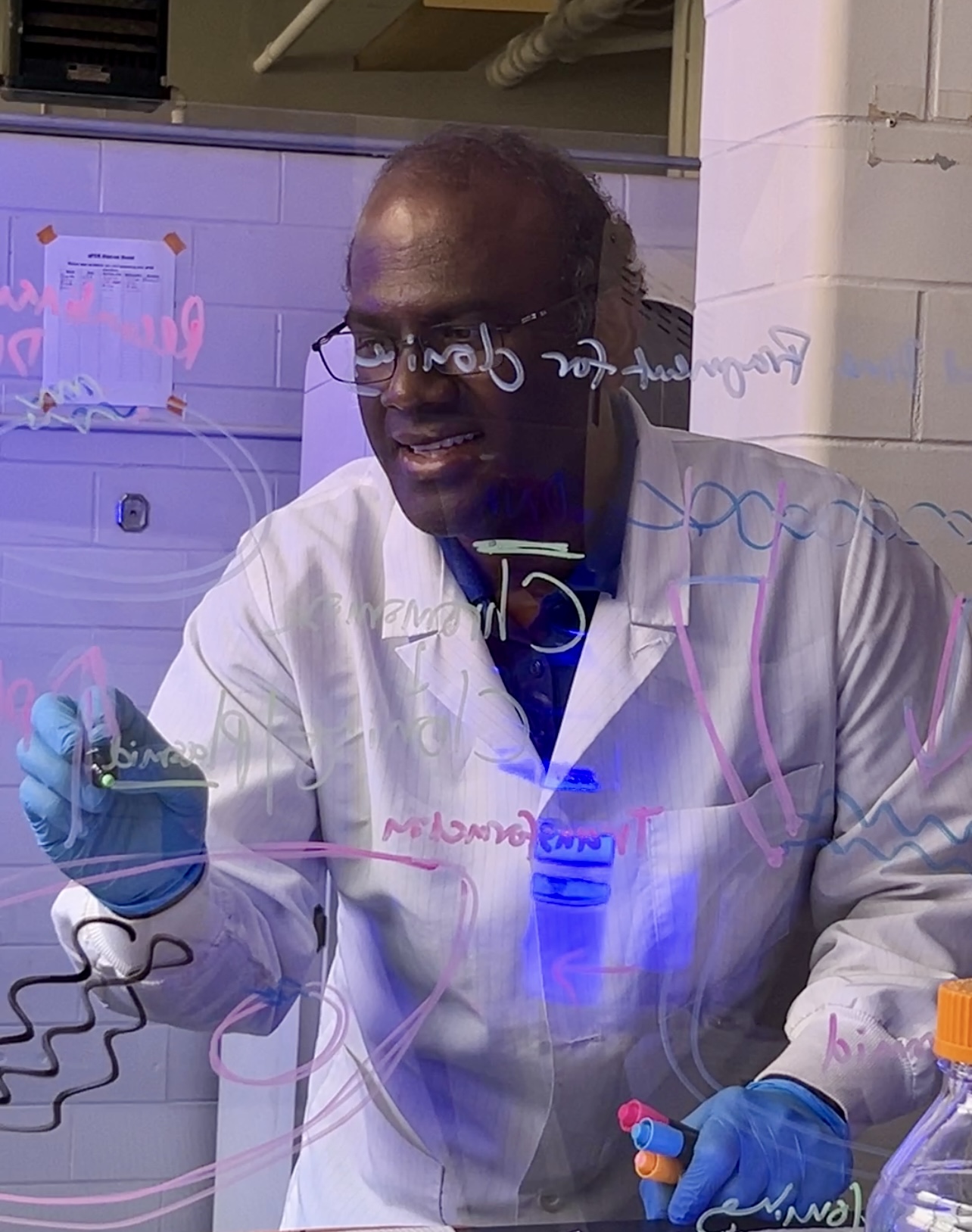
Research Focus
The Molecular Biology Laboratory (MBL) allows our faculty to conduct research into molecular mechanisms of the circadian clock, muscle physiology, cellular metabolism, cellular genetics, mitochondria biology and integrative and comparative biology. Research in this lab focuses on various biomedical questions such as circadian clock, chrono-nutrition and -exercise, respiratory diseases, aging and age-related diseases. Moreover, research also focuses on evolutionary questions such as sexual selection and the evolution of host/pathogen interaction. This research is funded by the National Institutes of Health, the National Science Foundation and various foundations and private companies.
Though the lab permits a broad spectrum of research on biological systems, the common themes are how dysregulated circadian clocks can cause human disease, evolution and life history traits, and the role of metabolism in health and disease. These studies use a combination of genetics and pharmacological approaches and different levels of organization, such as organism, tissue, cells and organelles, to address the questions.
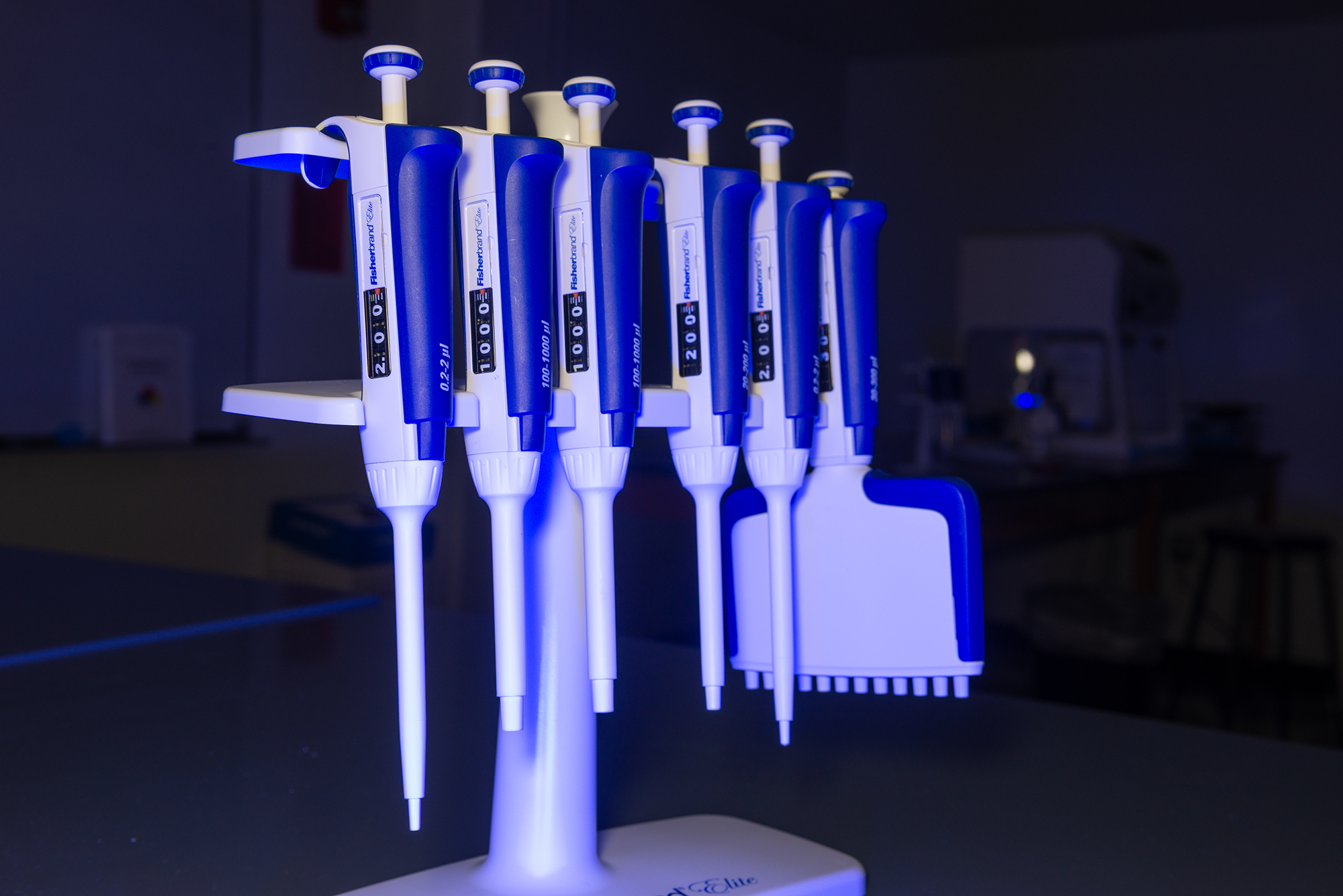
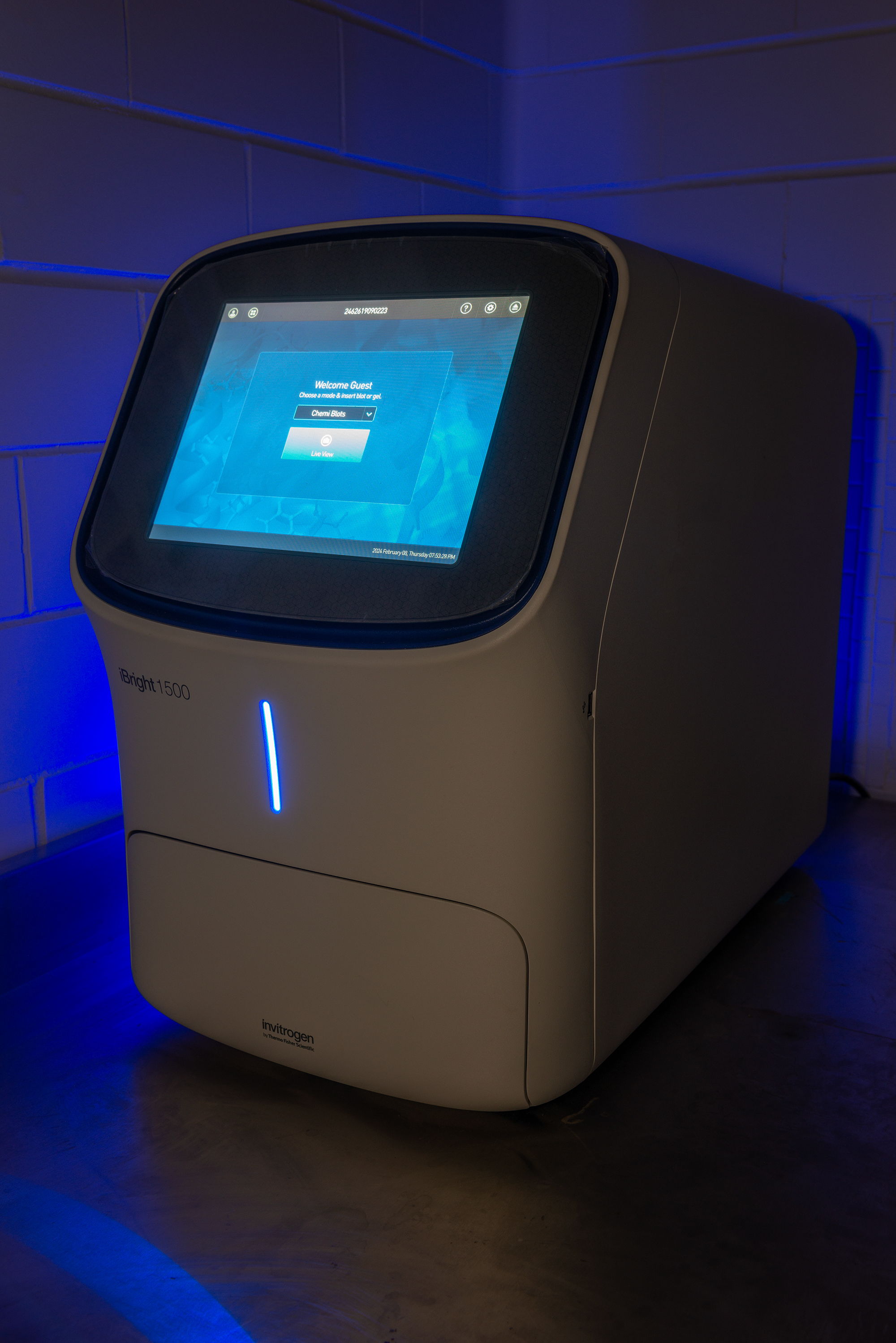
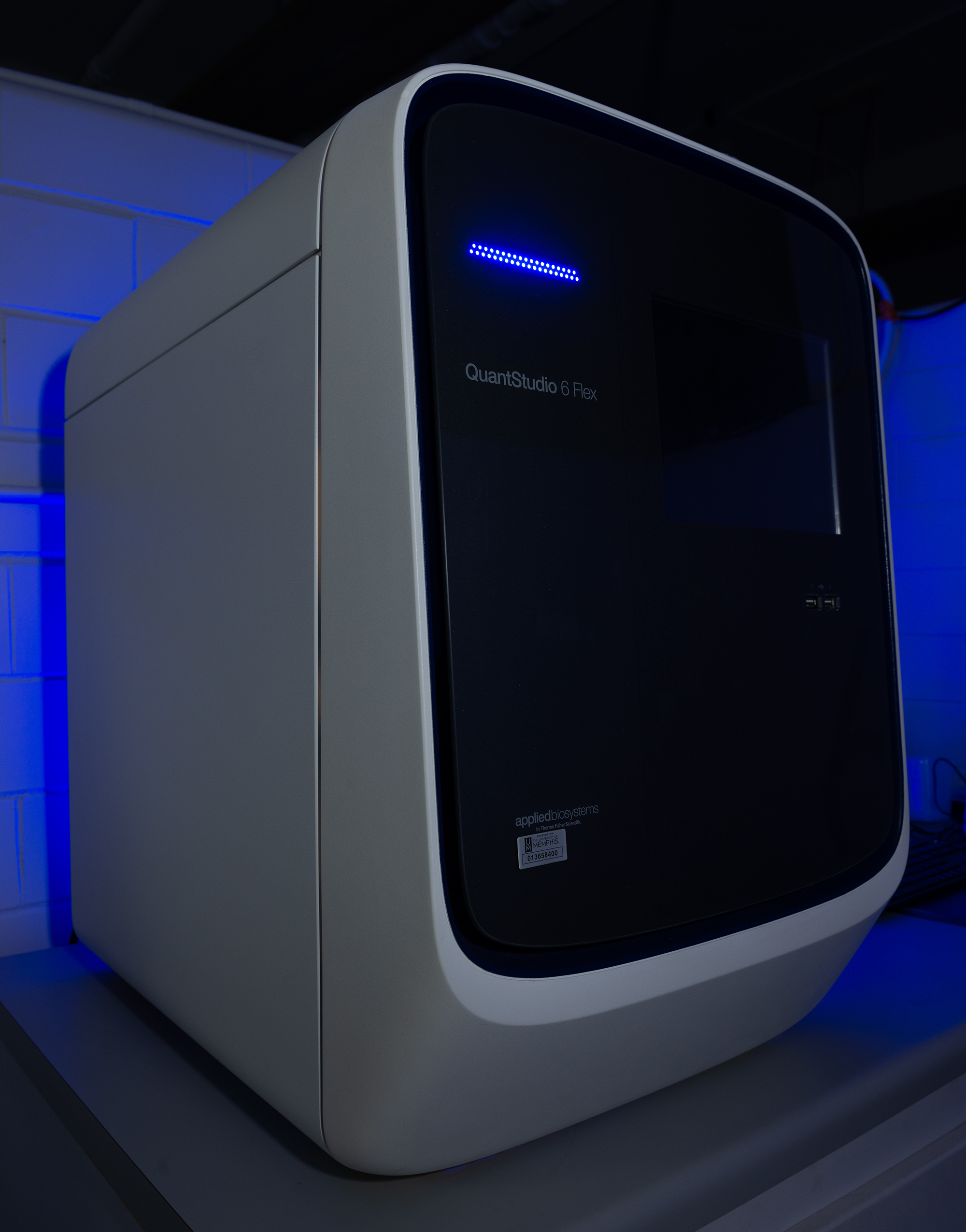
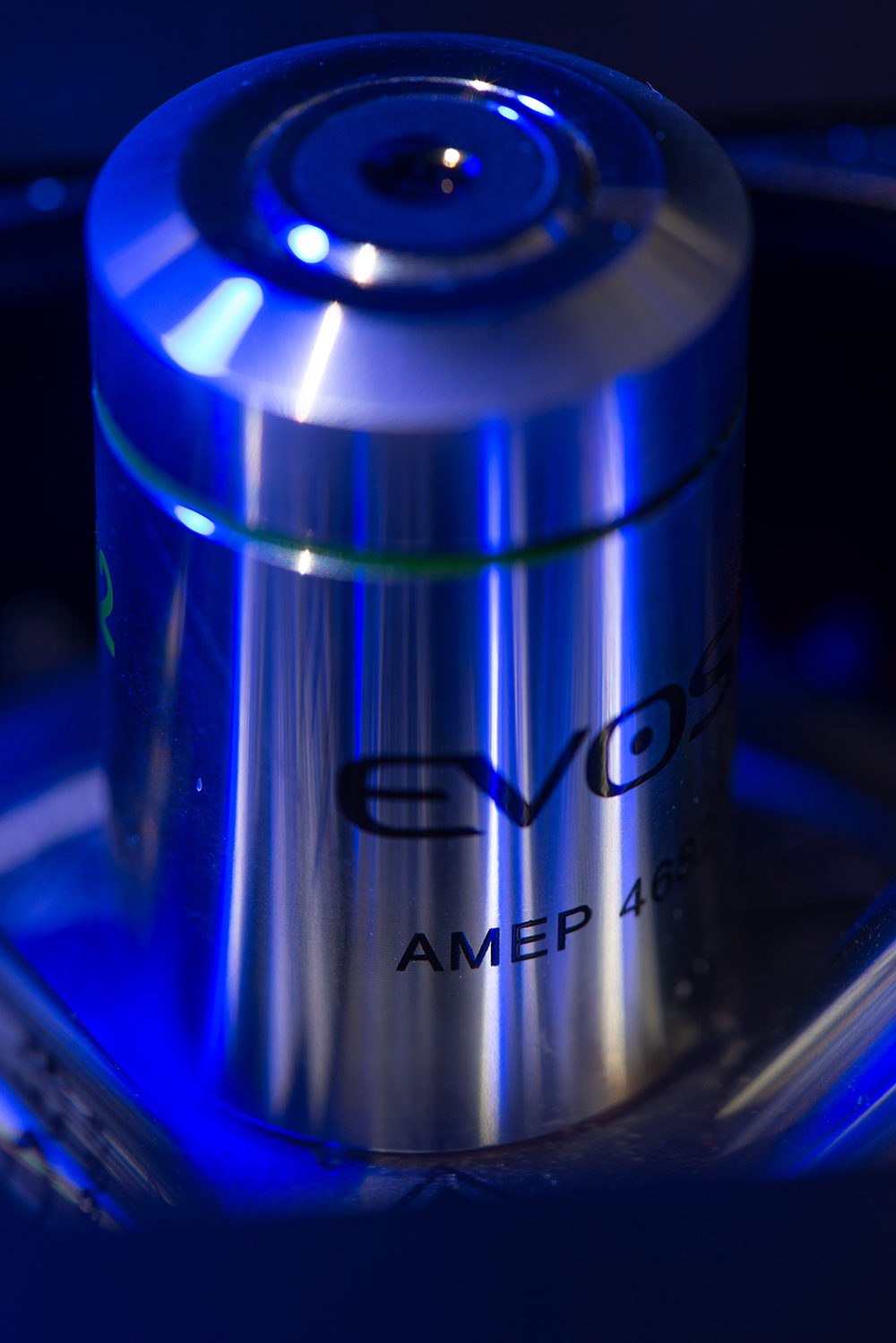
The MBL constitutes approximately 1,400 sq. ft and contains complete molecular biology (PCR, qPCR, cloning, RNAi, and CRISPR-Cas9 gene editing)-related equipment allowing for experiments involving bacterial growth and incubation, plasmid isolation, plasmid and genomic DNA resolution, gene expression analyais, agarose gel electrophoresis and gel documentation.
For cell culture, this facility is equipped with cell culture hoods, incubators, a fluorescence microscope, and additional equipment allowing us to perform all experiments in cell lines and purified primary cells. The laboratory contains 384 wellplate qPCR and 96 well plate PCR and nucleic acid quantification instruments to determine gene expression, genotyping/gene amplification and nucleic acid measurement. This facility also has a high-resolution Oroboros O2k machine to measure mitochondria respiration and membrane potentials at the cellular and organelle levels.
In addition to the above equipment, this facility has an ample working space which is equipped with the necessary equipment to perform biochemical assays, sample preparation, processing, and experimentation. The research unit is fully equipped with standard equipment, including fridges, freezers (-20 °C and -80°C), centrifuges, incubators, pH meters, water baths, and shakers.

